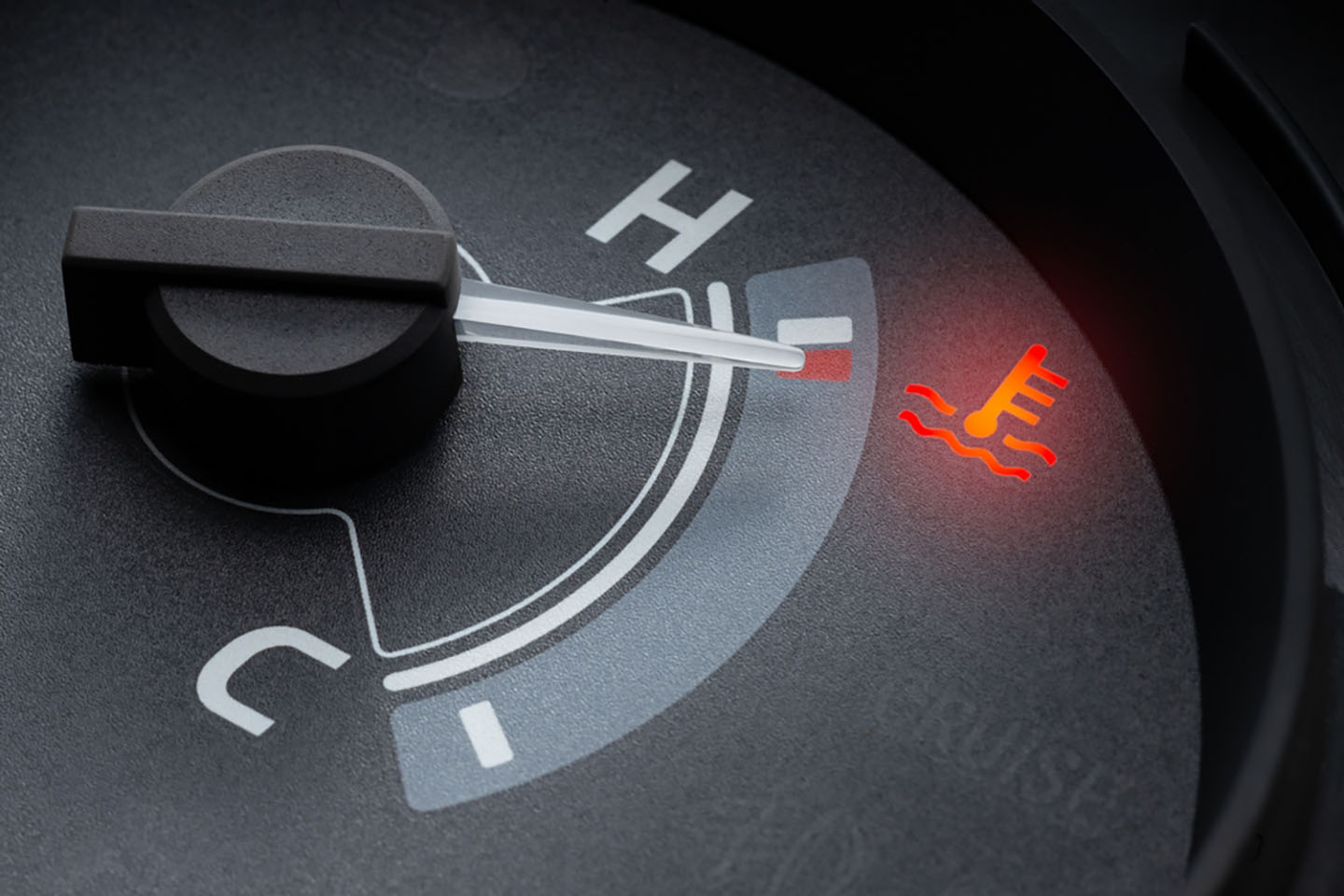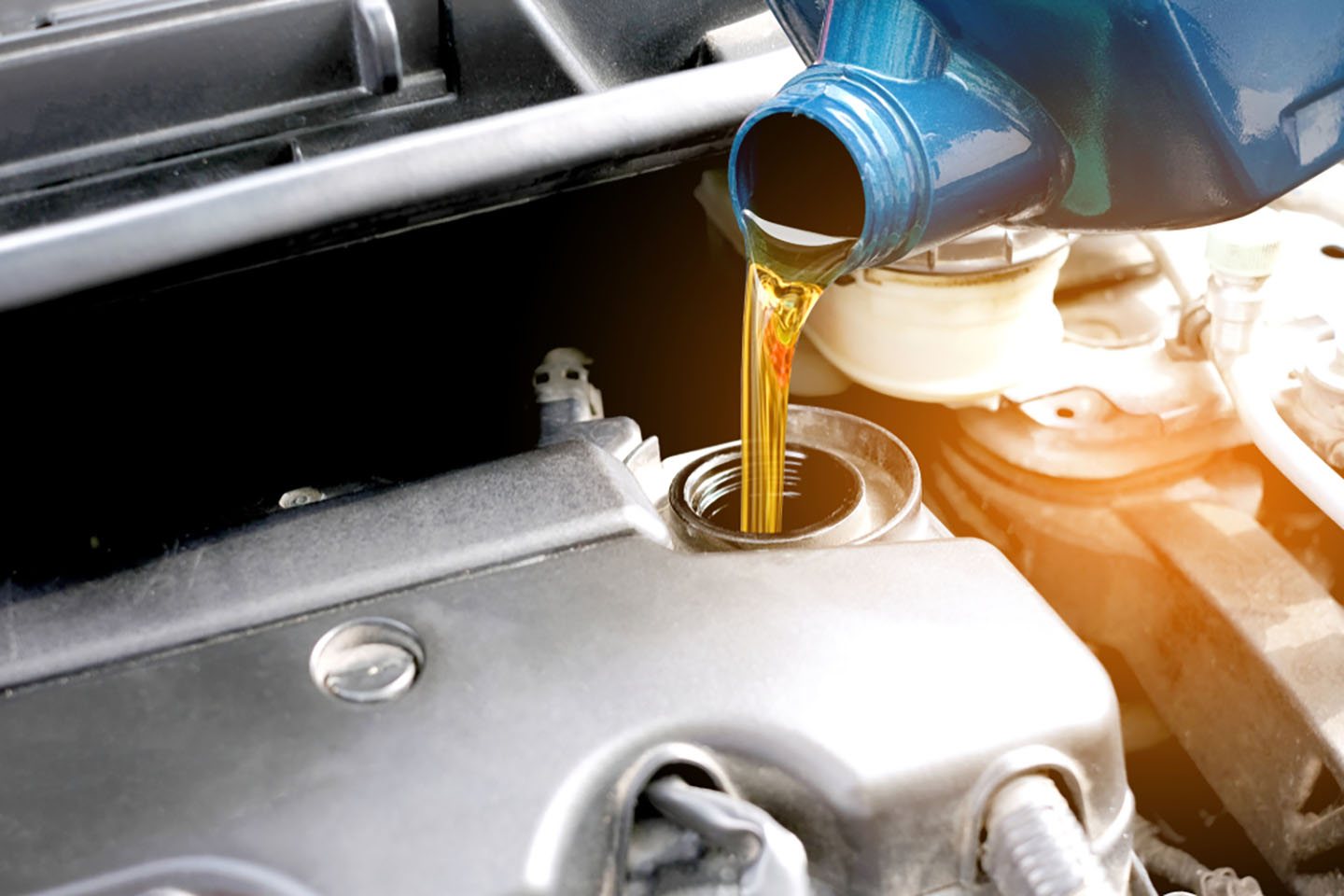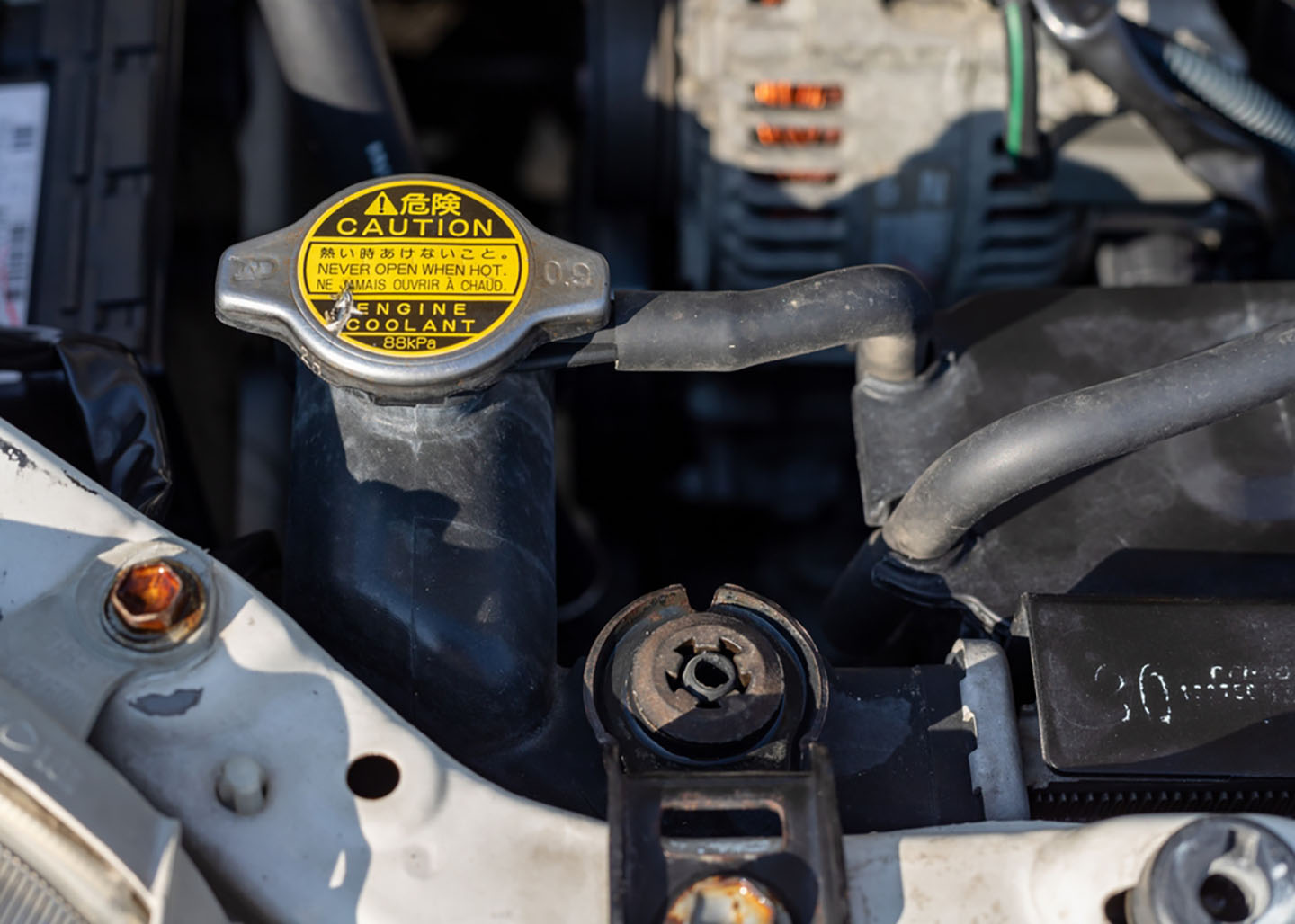How Hot Can a Diesel Engine Get Before Damage?
Mar 27th 2024

Santi S/shutterstock
Heat is necessary for internal combustion, but too much heat can also wreak havoc on your diesel engine. Extreme temperatures change the shape of crucial components, causing them to crack or rub against each other, increasing tension and structural damage. It also changes the chemical composition of the engine oil, reducing lubrication. So, how much heat is too much? Learn how hot a diesel engine can get before damage occurs.
Average Diesel Engine Temperature
Temperatures vary inside a diesel engine depending on your speed or the number of rotations per minute (RPM), the incline or gear grade, the overall weight of the vehicle, including the payload, and the temperature outside. However, the average diesel engine should run between 190 and 220 degrees Fahrenheit. It’s not uncommon for heavy haulers to reach 230 degrees F in mountain grade, but anything over the 220-degree mark can be cause for concern.
What Happens When the Engine Overheats?
When the engine runs hotter than usual, the excess heat causes the gaskets and cylinder heads to expand where the fuel enters the combustion chamber. This leads to blown gaskets and warped cylinders, which can cause leaks and injection failure.
Once the engine oil reaches 240 degrees F, it will start to break down, which can damage the oil system, including the high-pressure oil pump and fuel injectors. If the oil deteriorates, it can’t pressurize the fuel, leading to poor fuel efficiency and reduced acceleration. Synthetic oils are designed to handle heavier payloads with longer service intervals and can withstand temperatures up to 300 degrees F.
Keep an eye on the temperature gauge when accelerating or towing uphill. The dial will creep, if not hit, the H. The check engine light will come on when the oil temperature runs high, which should be your cue to reduce speed/weight or visit your local mechanic.

How to Fix a Diesel Engine After It Overheats
Once the engine exceeds 240 degrees F, the damage is done, and the vehicle may need extensive repairs. Inspect the fuel and oil systems for clogs and burnt oil that could reduce fuel pressure down the line.
Replace the fuel injectors if they appear clogged. Hot oil can also damage the HPOP that sends oil to the injectors. Replace the HPOP if oil/fuel pressure remains low or the engine leaks oil. Hot air from the engine can also damage the turbocharger, weakening the spring and wastegate over time so that it opens sooner than it should, resulting in reduced acceleration. Inspect and replace the turbo actuator if you have trouble boosting. If the engine continues to lose power or efficiency, check for symptoms of a bad fuel pressure regulator and replace it if it appears clogged.

GreenThumbShots/shutterstock
What Causes the Engine to Overheat?
Faulty coolant or a lack thereof can cause the engine to overheat. Check the radiator hose to make sure coolant is running to and from the engine. Watch for leaks in the coolant tank and check your levels often to see if you’re running through more than usual. The engine should automatically reduce power when coolant runs low, but you should solve the problem immediately to prevent further damage.
The water pump could also be to blame, although these parts often last the vehicle’s lifespan. Look for failing seals and leaks that prevent the radiator from cooling the engine. A dead or broken cooling fan will cause temperatures to skyrocket. Check your fuses and electrical system to make sure it’s working.
Clogged and poorly maintained fuel injectors can also cause the engine to overheat. When these passageways are blocked, the engine needs more oil/heat/pressure to force the fuel into the combustion chamber. Watch your fuel efficiency and acceleration to see if they are working correctly.
Nothing will damage your engine like excess heat. The degree may fluctuate, but if your engine runs hot on a cold day, without a heavy load, or in regular grade, that’s usually a sign something is wrong. Reduce your oil change interval to keep your fuel injectors and HPOP clean to minimize the risks of running hot, especially if you tow heavy loads for a living, drive in hot weather, or haul uphill.
